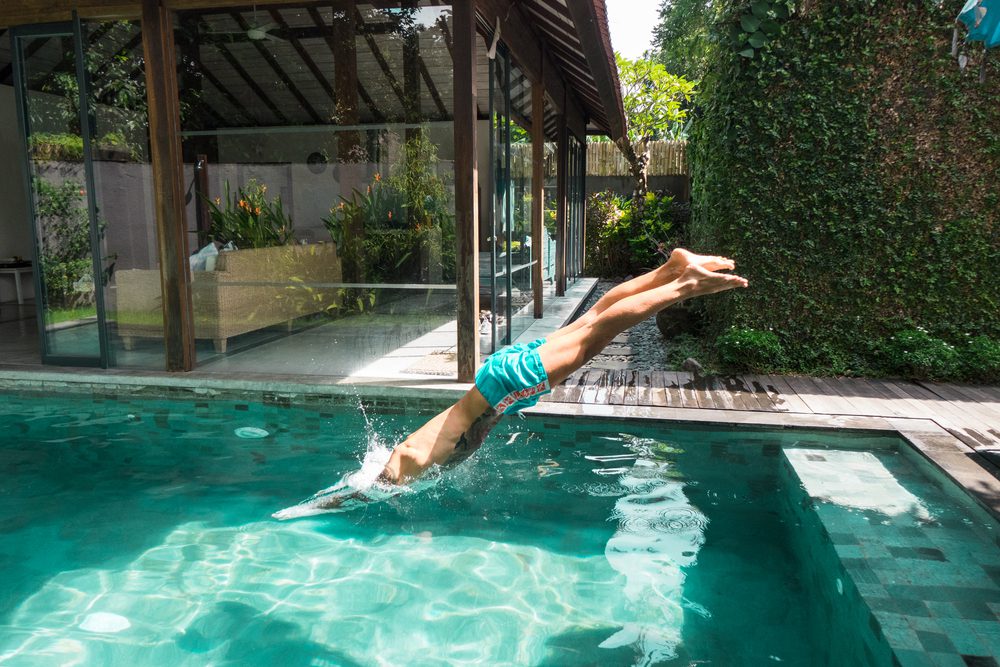Hire An Electrician For Swimming Pool Electrical Safety In Brisbane North Or Sunshine Coast
It is vital to ensure electrical safety around swimming pools, as electricity and water can make for a dangerous combination. Electric shock can be life-threatening. Many people are killed or injured in electrical accidents caused by negligence or ignorance every day.
Professional electricians are a great way to ensure your pool is free from electrical leakage or hazards. They can use risk management and hazard recognition principles to minimise electrical accidents and ensure safety in swimming pools.
Common causes for swimming pool electrocution
- Poor underwater lighting. Swimming pool lights that are not correctly grounded can cause electricity to flow through the water and electrocute people.
- Poor electrical installation. An incorrect wiring installation can cause stray electric currents. These currents could enter the pool and shock the swimmers. This could happen between all components of your pool, including the motorised pump and the metal handrails.
- Altering wiring can lead to electrical shock if it hasn’t been checked in years.
- Power washers and vacuums that are not grounded
- Ground-Fault Circuit Interrupters are not available for nearby receptacles.
- Electric appliances, extension cords, and electronic devices can instantly transmit a potentially fatal electrical current through water.
Keep your electrical equipment out of the pool.
If you have to set up electrical equipment near the pool, take extra care. Keep radios, TVs, blenders, grills, or phones away from the pool area. Equipment that isn’t designed for swimming in water can cause a current to the pool. Electrocution can occur if you touch a metal handle after energising the pool.
Electrocution can also be caused by pool equipment. The wires can cause electrical current to flow into the water if they are damaged or frayed. You should keep electrical equipment at least 2 metres from the pool’s edge if you have to use it.
Do not use extension cords within the pool area.
An extension cord should not be used near a pool. An electrical shock can result from a splash in the pool or from someone getting on the cord. Battery-operated appliances, and other equipment, don’t need to be plugged into. The risk of electrocution occurring around your pool will be reduced if you eliminate the use of cords.
Make sure the pool lights wiring is correctly installed.
Swimming pool lights can be both functional and attractive. A defective seal or crack could allow electricity to flow throughout the pool. Bad wiring can also cause electrical problems. Regular inspections for potential defects are necessary to minimise damage to the wiring and bulb damage. To ensure that the wiring is installed correctly and in compliance with government electrical regulations and code, a licensed electrician should be hired to maintain it.
Make sure you have a compliant GFCI
Ground-Fault Circuit Interrupters are required to be placed on the bottom right of every control panel for swimming pools. Make sure your swimming pool is equipped with a compliant GFI. This is required for swimming pools as it will trip the pool and cut off power if there is a stray current.
Install your GFCI correctly and according to code by a licensed electrician. It should be inspected periodically to ensure it is still working. To save lives, preventive maintenance should be a regular practice.
Avoid swimming in the pool during lightning storms
Swimming in the pool should be avoided during lightning strikes. Lightning can cause an electrical current to flow into the pool that is much more dangerous than if it strikes the wiring. The risk of electrocution is the same if lightning strikes equipment that runs the pool. To avoid electrocution, don’t swim in the pool if lightning strikes.
Learn how to shut off power in an emergency
It is essential to know where the circuit breakers and electrical switches are located in the pool. You should immediately turn off the pool’s power if there is an emergency or a problem.
A fibreglass hook is always handy. If electrocution occurs, you can use the fibreglass hook to reach people or things, but you don’t have to put yourself at risk.
Have your pool inspected at least twice per year by a licensed electrician
Over time, wiring can become damaged, and connections may fall apart. GFCIs may stop working correctly. A professional electrician can inspect your wiring and ensure that everything works properly. This will reduce the chance of accidents. If you require the services of a pool electrician, contact On Electrical PTY LTD for an inspection today.

